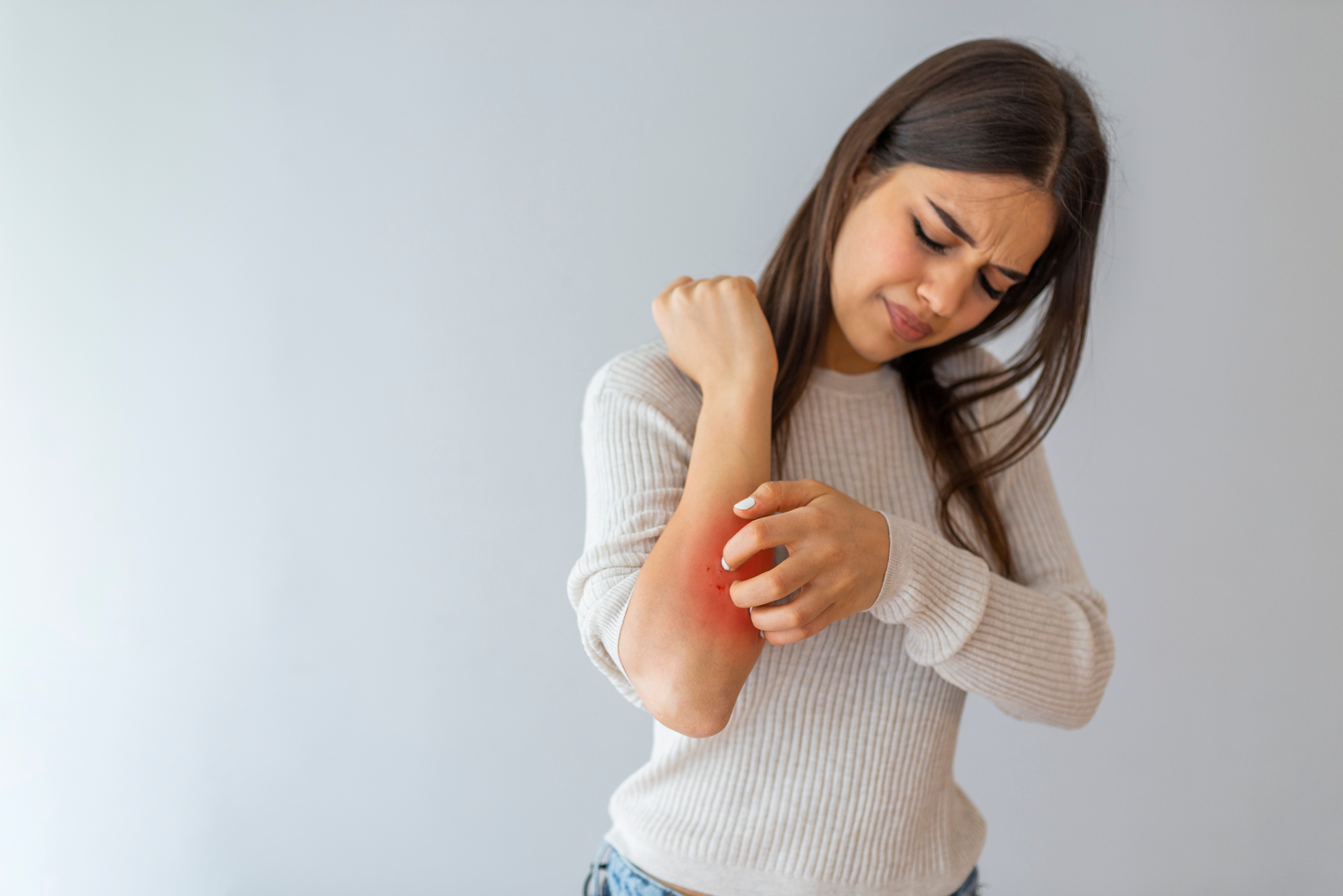
Common Eczema Causes and Triggers
Eczema is a chronic and inflammatory skin condition that can cause various symptoms, including itching, dryness, redness, and scaling. You may ask yourself, “Why do I have eczema?”. Finding the cause of your flare-ups can be challenging. Read on to discover some of the most common causes and triggers of eczema (e.g., soap and certain foods). Armed with this information, you can work to avoid these potential causes and reduce or even eliminate your symptoms.
1. Foods like dairy and wheat
Many different potential food allergies can trigger eczema symptoms. Common culprits include dairy, eggs, soy, wheat, peanuts, and tree nuts. If you suspect that a particular food is triggering your eczema flare-ups, talk to your doctor about getting allergy testing. The doctor could prescribe medication like Dupixent, which is a form of immunotherapy that helps to reduce eczema inflammation and itching.
2. Environment
Certain environmental factors can also trigger eczema flare-ups. These triggers can include weather (cold, dry air is a common trigger in winter), pollen, pet dander, and certain fabrics (wool or synthetic fabrics are often irritants). If possible, stay indoors when the weather is cold and dry and when there are high pollen levels. You may also want to use a humidifier in your home to help keep the air moist.
3. Stress
Stress can cause various physical health problems, and eczema is one. If you find that your eczema is worse when you’re under stress, try to find ways to relax and manage it. They can include things like yoga, meditation, or deep breathing exercises.
4. Soap and detergents
Most soaps contain chemicals that can dry out the skin and trigger eczema flare-ups. Look for gentle, unscented ones that are designed for sensitive skin. You may also want to try soap-free cleansers or bath oils. Detergents can also be irritating to the skin. If possible, switch to a gentle, hypoallergenic laundry detergent. You may also want to avoid fabric softeners and dryer sheets, which can also irritate the skin. If you have severe eczema, talk to your doctor about whether Gold Bond may be right to use. It is a topical cream that is often used to treat eczema as it contains ingredients that can help to soothe the skin and reduce inflammation.
5. Seasonal allergies
Allergies can be a major trigger of eczema flare-ups. If you have seasonal allergies, you may want to talk to your doctor about allergy shots. These shots can help to reduce your symptoms and make them more manageable. You may also want to take over-the-counter or prescription medications to help relieve your symptoms.
6. Hormones
Hormonal changes can trigger eczema flare-ups in some people. It is most common in women during pregnancy, puberty, and menopause. If you find that your eczema is worse at certain times of the month, talk to your doctor about whether hormones could be the cause.
7. Medications
Certain medications can also cause or worsen eczema symptoms. These include beta-blockers, ACE inhibitors, and NSAIDs. If you think that a particular medication is causing your eczema to flare up, talk to your doctor about changing medications.
8. Skin conditions
Other skin conditions can also trigger eczema flare-ups. These include psoriasis, seborrheic dermatitis, and contact dermatitis. If you have one of these conditions, your doctor may prescribe a specific treatment plan to help control your eczema.
9. Smoke
Smoke from cigarettes, cigars, or fireplaces can trigger eczema flare-ups. If possible, try to avoid exposure. If you can’t avoid it, wash your hands and face immediately after exposure. You may also want to use a humidifier in your home to help keep the air moist.
10. Certain metals
Some patients with eczema find that certain metals, such as nickel, can trigger their symptoms. If you think that metal is triggering your eczema, try to avoid exposure to it. You may also want to talk to your doctor about getting tested for metal allergies.
There are many potential causes and triggers of eczema. By understanding these triggers, you can take steps to avoid them and keep your eczema under control. If you suspect that a particular trigger is causing your eczema to flare up, talk to your doctor. They can help you develop a plan to manage your symptoms and improve your quality of life.


